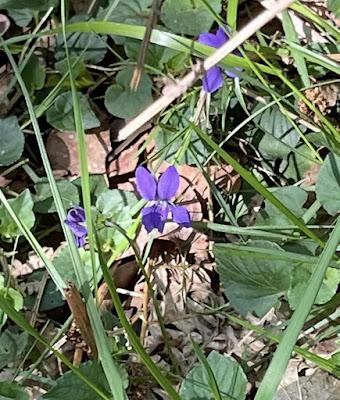
Spring violets, the New Forest, England
My friend Susan Kean, an excellent photographer, recently visited the New Forest in England, when wildflowers were everywhere and new foals were frolicking in the meadows. She has graciously agreed to share some of her photographs with The Intrepid Tourist.
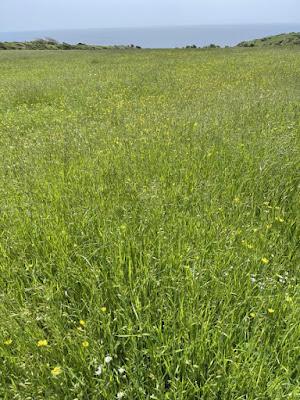
Meadows like this one in the New Forest are places where meadowlarks and other creatures can survive.
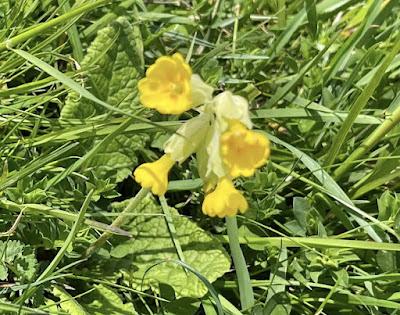
My favorite flower, the cowslip. They have an incredible smell.
The New Forest is one of the largest remaining tracts of unenclosed pasture land, heathland and forest in Southern England, covering southwest Hampshire and southeast Wiltshire. It was proclaimed a royal forest by William the Conqueror, featuring in the Domesday Book.
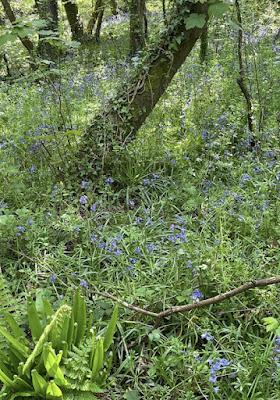
Acres of bluebells.
Susan writes: The bluebell seems to be England’s answer to the California poppy. They grow in surprising places but things have to just right for them to thrive.
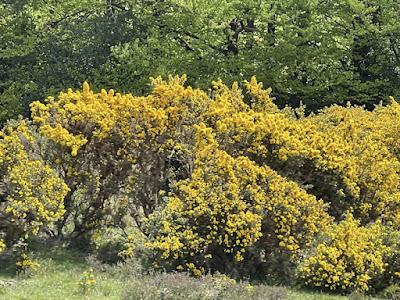
Acres of gorse in New Forest.
No visit to the New Forest is complete without pony pictures. Local people (commoners, that is, people who own part of the Common land) are free to graze their animals in the New Forest. This came from the time when King William I, around 1100, established the forest as a royal hunting preserve and the people who lived there were not allowed to fence their properties. They were, however, granted rights to let their animals graze freely. Those rights are still in place today!
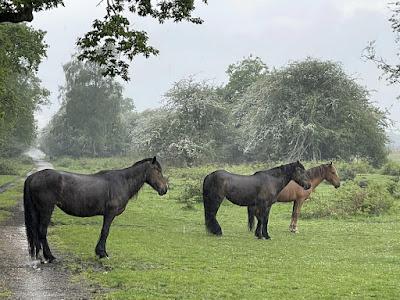
New Forest ponies.
Even a wet day in the New Forest was great for pony watching. There were lots of young foals.
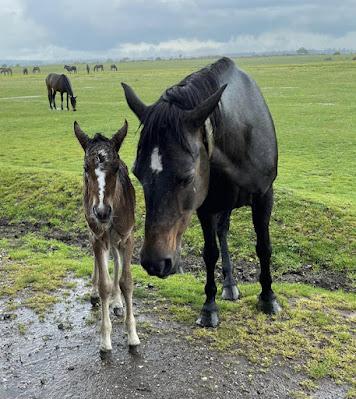
Mother and foal.
This foal was very curious about me but mom kept an eye on me. Baby foal would have come right up to me but I decided Mom might not trust me and could give me a hard kick. So I moved away.
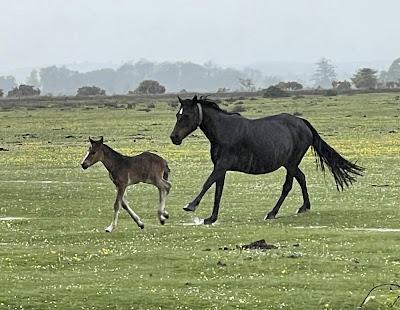
Even ponies have to chase after their children sometimes.
For more about sightseeing in Hampshire, see Anita Withrington's guest post about the Alice in Wonderland topiary at the Hampshire Gardens and the National Motor Museum (Feb 26, 2023).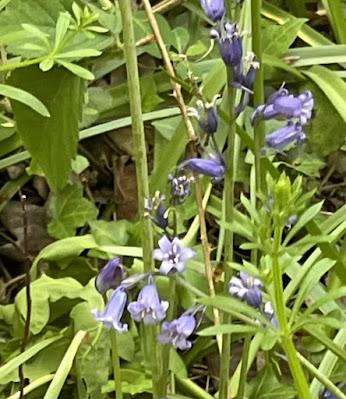
Bluebells, New Forest.
